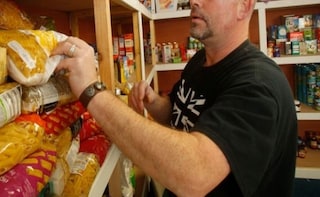High unemployment, poverty and government cuts significantly associated with increased need for food aid, Oxford University research shows
Advertisement
Advertisement
Advertisement
Advertisement
For the latest food news, health tips and recipes, like us on Facebook or follow us on Twitter and YouTube.
Advertisement
Tags:
